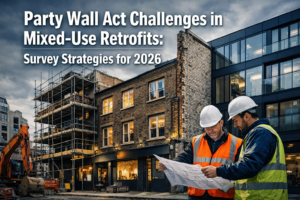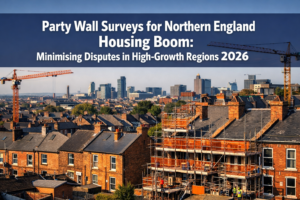The house you’re going to buy may look sound to you, but there may be more than meets the eye. What may have been shown to you as an attractive building can actually be concealing all sorts of issues needing specialist attention. A building surveyor has the expertise and experience to determine if there’s anything to be worried about.
The Best Local Building Surveyors for your Property in Wimbledon London
The goal of the professional inspection and survey report is to inform the buyer on the possibilities of what you could be getting yourself into. For most of us, purchasing a home could be the largest investment we would have to make, so we must do it right.
The team has been surveying properties in Wimbledon London and the Home Counties for over twenty five years. They are members of the Royal Institution of Chartered Surveyors (RICS) and offer a choice of RICS Surveys, with the most popular being the HomeBuyer Report and the full RICS Building Survey. They are also able to provide lots of professional advice and guidance to help you decide if you would like to purchase the property in question. You can count on them to assist you.
That’s fine, as long as the problems aren’t serious. But, if the house of your dreams has serious problems, you might think again. A ‘bad’ survey can be very disappointing, but it doesn’t necessarily mean you have to pull out of your purchase. Maybe you can use it to get a better deal.
What Common Problems are found in a Building Survey?
Whatever the age of the property, it is unusual if a Home Survey doesn’t reveal at least some areas of concern. Some of the most common problems found during a house survey include:
- movement in the structure (subsidence)
- roof damage and drainage problems
- damp and basic timber defects (e.g. wet rot and dry rot)
- invasive species like Japanese Knotweed
Options post-Building Survey
After you have fully acknowledged the implications of what the survey shows, don’t panic. Instead, you need to calmly think about your options such as the following:
Stay the course
Remember, if the building surveying have raised a serious issue with the property you are buying, it may not be such a bottomless can of worms as it first appears.
If you’re planning to dig up the floorboards and tank or insulate floors for example, then 100 year old, leaky electrics and ancient plumbing may not be insurmountable obstacles.
Maybe you’ve bought the property at a discount due to its ‘poor’ condition and plan to have an electrician in to completely rewire the whole house and you’re happy that the price you’ve agreed allows you enough of a budget to do those things. You could then see what the building surveyor found and get information on how to complete a proper refurbishment with list of priorities.
Request Repairs of the Seller
Alternatively, why not share the offending survey findings with the seller and ask them to fix whatever is the problem before you exchange contracts? You can make it a condition of the contract that you will only move forward if, say, the problem of the leaky roof or broken guttering has been dealt with. Know your defects, however, by having a rough idea of what they would cost to fix. If necessary, get a Specific Defect Report or further investigation/survey by a specialist surveyor to help make your case. If the seller agrees, make sure you put a checking system in place to see everything is done as promised.
Negotiate the Price
If, however, the problem isn’t a quick fix or you would much rather tackle the building repairs yourself, you can ask the seller to reconsider the agreed price. One of the best things about a property survey is that it gives you greater bargaining power. With written evidence from an independent specialist to back you up and a concrete idea of the costs involved to remedy the issue, you can request a discount equivalent to the amount it would cost to fix it. The seller does not have to renegotiate of course, but with some give and take a compromise can usually be found.
Walk Away as a Last Resort
Legally, your offer to purchase the property is ‘subject to contract’, so you are not legally committed to buying the property until the contracts have been exchanged.
Let your surveyor know so they can assess how much it will cost you to correct the issues and whether other issues could arise in the long term – such as historical subsidence, a knotweed management plan and so on – which could affect future decisions on the property, including its value and saleability. If you think the findings of the survey are a deal-breaker, you can simply end the process.
Contact
A bad survey result doesn’t have to mean that your dream home is now out of the question but it does mean that you must be prepared to be honest with yourself and make some tough decisions in respect of the information that has come to light. Talk to your surveyor and ask what they might do (off the record).
If the seller isn’t prepared to budge on price, maybe you bite the bullet and take on the additional cost/risk. Remember to commission a Specific Defect Survey or Damp Reports for more troubling issues so that you know whether this is a nightmare property or not.
Please contact our Wimbledon London team if you would like to discuss your next property purchase and obtain an instant quote.
















